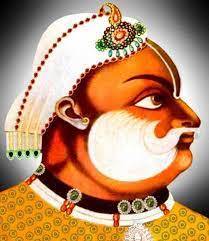Net Qualified (A.U.) | Posted on | Education
Is it true that Raja Surajmal betrayed Marathas during the 3rd Battle of Panipat?
Net Qualified (A.U.) | Posted on
On the opposite side all the Muslim rulers in India, joined to help Ahmed Shah Abdali. Ahmed Shah slyly welcomed Ghazi Uddin with the affirmations that he would reestablish him as Grand Wazir. Surajmal allowed Ghazi Uddin to get back to Abdali, however he was so intensely obligated to the Jats, that he completely dismissed Abdali's greeting.
An operational gathering was held at Agra to talk about the designs for the fight against Abdali. Maharaj Surajmal was a strategist of top quality. He valued that the adversary had unrivaled powers. The solitary manner by which Marathas could win was by getting sorted out their powers into profoundly versatile hard hitting gatherings.
He proposed that they should shed their weighty stuff and their families and send them across River Chambal to the fortress of Deeg for security. He additionally prompted that they ought to dodge pitched fight, lead guerilla fighting and keep pestering and deferring the adversary till the on-set of the blustery season. At this point Abdali's powers which were not acclimated with hard life would get discouraged and exhausted. At that point the Marathas should assault, and kill the adversary powers.
These strategies of Maharaja Surajmal were a lot of valued by every one of the Maratha Chiefs with the exception of (Sadashiv) Raghunath Rao Bhau, who believed the reception of these strategies to be underneath his nobility. He gruffly revealed to Suraj Mal that the Marathas didn't require help or direction from any quarter for the clash of Panipat. Inspite of this Maharaja Surajmal stayed in help with Ghazi Uddin and 18,000 soldiers. In July 1760, Marathas involved Delhi, Ghazi Uddin was named Wazir and a sovereign of Moghul administration was set on the seat of Delhi. Yet, before long, much against the desires of Maharaja Surajmal, the Marathas eliminated Ghazi Uddin from Wazarat and selected a Mahratta in his place.

0
0 Comment
